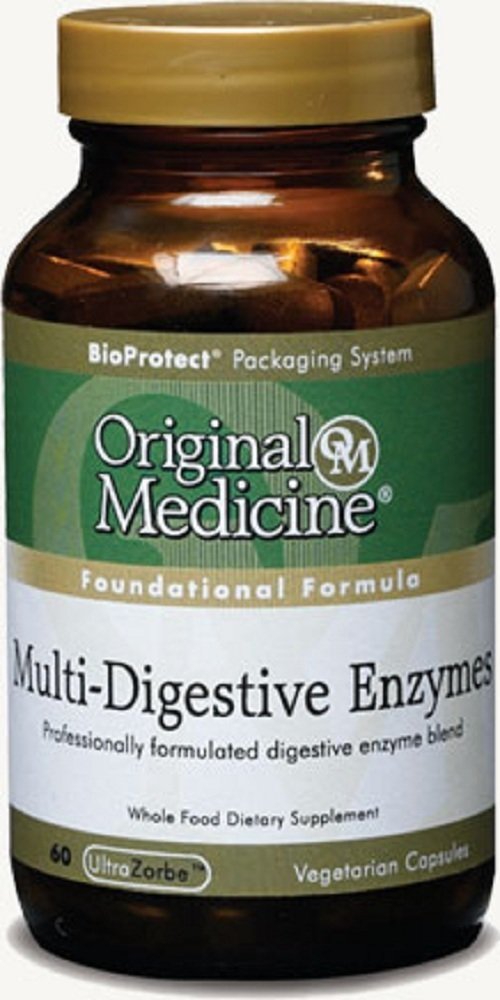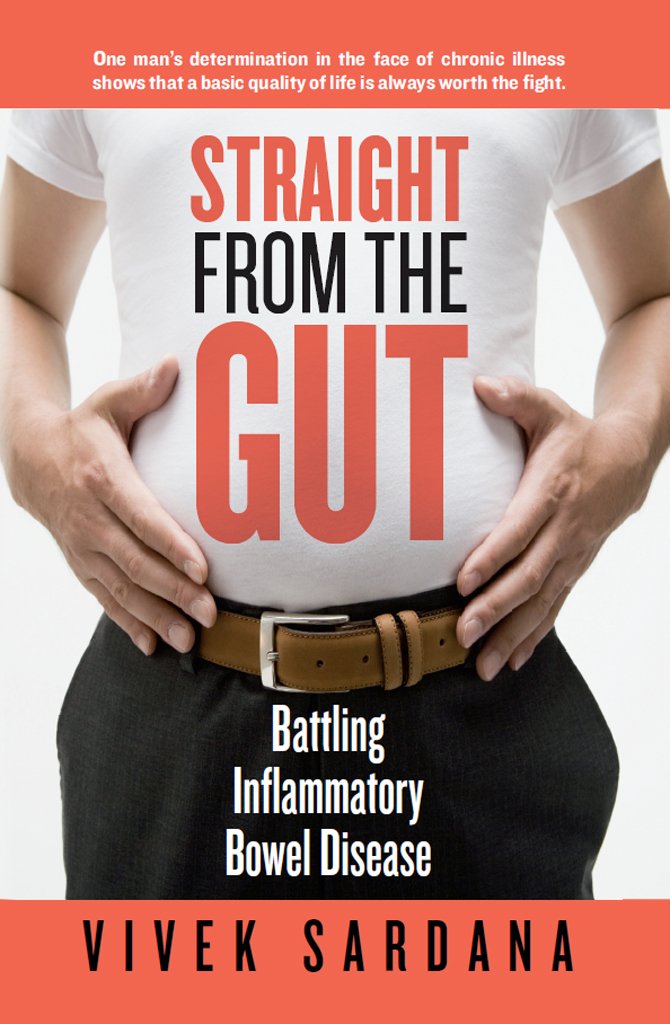Management of Crohn's disease involves first treating the acute symptoms of the disease, then maintaining remission. Since Crohn's disease is an immune system disease, it cannot be cured by medication or surgery. Treatment initially involves the use of medications to eliminate infections, generally antibiotics, and reduce inflammation, generally aminosalicylate anti-inflammatory drugs and corticosteroids. Surgery may be required for complications such as obstructions or abscesses, or if the disease does not respond to drugs within a reasonable time. However, surgery cannot cure Crohn's disease by any means - it involves removing the diseased part of the intestine and rejoining the healthy ends, as Crohn's disease tends to recur after surgery.
Once remission is induced, the goal of treatment becomes maintenance of remission, avoiding the return of active disease, or "flares". Because of side-effects, the prolonged use of corticosteroids is avoided. Although some people are able to maintain spontaneously, many require immunosuppressive drugs.

Aminosalicylate
5-ASA compounds (Mesalazine, Sulfasalazine, etc) have shown to be of very little efficacy in the treatment of Crohn's disease both for induction and for maintenance of remission. Current guidelines do not advise the use of 5-ASA compounds for the treatment of Crohn's disease.
Crohns Medicine Video
Corticosteroid
Corticosteroids are a class of anti-inflammatory drug that are used primarily for treatment of moderate to severe flares of Crohn's disease. They are used more sparingly due to the availability of effective treatments with fewer side-effects. The side effects of corticosteroids include Cushing's syndrome, mania, insomnia, hypertension, high blood glucose, osteoporosis, and avascular necrosis of long bones. These should not be confused with the anabolic steroids used to enhance athletic performance.
The most commonly prescribed oral steroid is prednisone, which is typically dosed at 0.5 mg/kg for induction of remission. Intravenous steroids are used when oral steroids do not work, or where oral steroids cannot be taken. These are administered in the hospital setting. Because corticosteroids reduce the ability to fight infection, care must be used to ensure that there is no active infection, particularly an intra-abdominal abscess before the initiation of steroids.
Budesonide is an oral corticosteroid with limited absorption and high level of first-pass metabolism, meaning that less quantities of steroid enter into the bloodstream. It has been shown to be useful in the treatment of mild-to-moderate Crohn's disease and for maintenance of remission in Crohn's disease. Formulated as Entocort, budesonide is released in the ileum and right colon, and is therefore has a topical effect against disease in that area.
Budesonide is also useful when used in combination with antibiotics for active Crohn's disease.
Steroid enemas can also be used for disease of the lower colon and rectum, in order to treat symptoms. Hydrocortisone and budesonide liquid and foam enemas are being marketed for these reasons.
Corticosteroids however have a host of side effects, some very serious, and it is desirable to curtail their use whenever possible.
Mercaptopurine immunosuppressing drugs
Azathioprine and 6-mercaptopurine (6-MP) are the most used immunosuppressants for maintenance therapy of Crohn's disease. They are purine anti-metabolites, meaning that they interfere with the synthesis of purines required for inflammatory cells. They have a duration of action of months, making it unwieldy to use them for induction of remission. Both drugs are dosed at 1.5 to 2.5 mg/kg, with literature supporting the use of higher doses.
Azathioprine and 6-MP have been found to be useful for the following indications:
- For maintenance therapy for people who are dependent on steroids.
- Fistulizing disease.
- Induction of remission in steroid refractory disease.
- Maintenance of remission after surgery for Crohn's disease.
Azathioprine is however a particularly dangerous drug, with great potential for inviting a host of potentially fatal infections, and is also listed by the FDA as a human carcinogen; however, it confers considerably less morbidity and mortality than corticosteroids.

Biologic therapies
Infliximab
Infliximab, is a mouse-human chimeric antibody that targets tumour necrosis factor, a cytokine in the inflammatory response. It is a monoclonal antibody that inhibits the pro-inflammatory cytokine tumour necrosis factor alpha. It is administered intravenously and dosed per weight starting at 5 mg/kg and increasing according to character of disease.
Infliximab has found utility as follows:
- Maintenance of remission for people with Crohn's disease.
- Induction of remission for people with Crohn's disease.
- Maintenance for fistulizing Crohn's disease.
Side effects of infliximab, like other immunosuppressants of the TNF class, can be serious and potentially fatal, and infliximab carries an FDA black-box warning on the label. Listed side effects include hypersensitivity and allergic reactions, risk of re-activation of tuberculosis, serum sickness, and risk of multiple sclerosis. Serious side effect also include lymphoma and severe infections.
Adalimumab
Adalimumab like infliximab is an antibody that targets tumour necrosis factor. Adalimumab has been shown to reduce the signs and symptoms of, and is approved for treatment of, moderate to severe Crohn's disease (CD) in adults who have not responded well to conventional treatments and who have lost response to, or are unable to tolerate infliximab.
Adalimumab also has a number of serious, potentially fatal, safety concerns characteristic of the anti-TNF? drugs. It too has a black box warning on its FDA label. Listed potential side effects include serious and sometimes fatal blood disorders; serious infections including TB (tuberculosis) and infections caused by viruses, fungi, or bacteria; rare reports of lymphoma and solid tissue cancers; rare reports of serious liver injury; and rare reports of demyelinating central nervous system disorders); and rare reports of cardiac failure.
Natalizumab
Natalizumab is an anti-integrin monoclonal antibody that has shown utility as induction and maintenance treatment for moderate to severe Crohn's disease. Natalizumab may be appropriate in patients who do not respond to medications that block tumor necrosis factor-alpha such as infliximab.
In January 2008, the FDA approved natalizumab for both induction of remission and maintenance of remission for moderate to severe Crohn's disease.
A total of 3 large randomized controlled trials have demonstrated that natalizumab is effective in increasing rates of remission and maintaining symptom-free status in patients with Crohn's disease.
Natalizumab has also been linked to PML (though only when used in combination with interferon beta-1a). The label also recommends monitoring of liver enzymes due to concerns over possible damage or failure.
Also associated with a rare but serious risk of multifocal leukoencephalopathy (brain infection leading to death or severe disability). Therefore a specific program exists in which prescribers must be enrolled, CD-TOUCH (Crohn's Disease-Tysabri Outreach Unified Commitment to Health) Prescribing Program.
Surgery
Surgery is normally reserved for complications of Crohn's disease or when disease that resists treatment with drugs is confined to one location that can be removed. Surgery is often used to manage complications of Crohn's disease, including fistulae, small bowel obstruction, colon cancer, small intestine cancer and fibrostenotic strictures, when strictureplasty (expansion of the stricture) is sometimes performed. Otherwise, and for other complications, resection and anastomosis - the removal of the affected section of intestine and the rejoining of the healthy sections - is the surgery usually performed for Crohn's disease (e.g., ileocolonic resection). None of these surgeries cure or eliminate Crohn's disease, as the disease eventually comes back in healthy segments of the intestine, although when Crohn's disease recurs after surgery, it usually comes back at the site of the surgery.
Small intestine transplants are becoming less experimental, but are still mainly performed in response to short bowel syndrome due to a high rate of transplant rejection.
Diet and lifestyle
Many diets have been proposed for treatment of Crohn's disease, and many do improve symptoms, but none have been proven to actually cure Crohn's disease. Specific Carbohydrate Diet usually needs adjustments for patients so that they can handle the diet. If a patient finds that certain foods increase or decrease the symptoms, then they may adjust their diet accordingly. A food diary is recommended to see what positive or negative effects particular foods have. A low residue diet may be used to reduce the volume of stools excreted daily. People with lactose intolerance due to small bowel disease may benefit from avoiding lactose-containing foods. Patients who cannot eat are recommended to take total parenteral nutrition (TPN) - a source of vitamins and nutrients.
Fish oil has been found to be effective in reducing the chance of relapse in less severe cases.
Because the terminal ileum is the most common site of involvement and is the site for vitamin B12 absorption, people with Crohn's disease are at risk for B12 deficiency and may need supplementation. In cases with extensive small intestine involvement, the fat soluble vitamins A, D, E and K can be deficient. Folate deficiency is a risk for patients treated with methotrexate who do not simultaneously receive folate supplementation.
Stress can influence the course of Crohn's disease. Conversely, stress is likely to be caused by the flaring up of the disease and this would make day to day life more difficult.
Smoking has also been noted to have an association with Crohn's, and smokers with Crohn's are encouraged to explore smoking cessation programs.
Not only can smoking make Crohn's disease worse in people who do it, it also means that the risk of their disease recurring after surgery increases, and if a Crohn's disease sufferer who is having surgery does not quit smoking, their Crohn's will inevitably recur more aggressively.

Helminthic therapy
In an experimental idea called Helminthic therapy, moderate hookworm infections have been demonstrated to have beneficial effects on hosts suffering from diseases linked to overactive immune systems. This is possibly explained by the hygiene hypothesis. Helminthic therapy may help sufferers of Crohn's Disease Hookworm therapy is currently in the trial stage at the University of Nottingham. Due to the unconventional nature of this therapy, it is not widely used.
Alternative medicine
More than half of people with Crohn's disease have tried complementary or alternative therapy. These include diets, probiotics, fish oil and other herbal and nutritional supplements. The benefit of these medications is uncertain.
Acupuncture
Acupuncture is used to treat inflammatory bowel disease in China, and is being used more frequently in Western society. Evidence has been put forth suggesting that acupuncture can have benefits beyond the placebo effect, improving quality of life, general well-being and a small decrease in blood-bound inflammatory markers. This study however had a very small test set and did not reach the threshold for benefit.
Herbal
- Boswellia is an ayurvedic (Indian traditional medicine) herb, used as a natural alternative to drugs. One study has found that the effectiveness of H-15 extract is not inferior to mesalazine: "Considering both safety and efficacy of Boswellia serrata extract H15 it appears to be superior over mesalazine in terms of a benefit-risk-evaluation."
Other medications
- Methotrexate is a folate anti-metabolite drug which is also used for chemotherapy. It is useful in maintenance of remission for those no longer taking corticosteroids.
- Metronidazole and ciprofloxacin are antibiotics which are used to treat Crohn's that have colonic or perianal involvement, although this use has not been approved by the Food and Drug Administration. They are also used for treatment of complications, including abscesses and other infections accompanying Crohn's disease.
- Thalidomide has shown response in reversing endoscopic evidence of disease.
- Cannabis may be used to treat Crohn's Disease with its anti-inflammatory properties. Cannabis and cannabis-derived drugs may also help to heal the gut lining. It may also reduce the need for surgery and other medications.
Non-steroidal anti-inflammatory drugs (NSAIDs), such as ibuprofen and naproxen, can cause flares of inflammatory bowel disease in approximately 25% of patients. These flares tend to occur within one week after starting regular use of the NSAID. In contrast, acetaminophen (paracetamol) and aspirin appear to be safe. Celecoxib (Celebrex), a cox-2 inhibitor, appears to be safe, at least in short-term studies of patients in remission and on medicine for their Crohn's disease.
Research
Many clinical trials have been recently completed or are ongoing for new therapies for Crohn's disease. They include the following:
- Certolizumab is a PEGylated Fab fragment of a humanized anti-TNF alpha monoclonal antibody that was found to have efficacy over placebo in one large trial.
- Traficet-EN/CCX282/GSK'786/vercirnon is a CCR9 chemokine receptor antagonist intended to modulate immune response. It has undergone Phase III clinical trials and failed, showing no improvement over a placebo.
- ABT-874 is a human anti-IL-12 monoclonal antibody being developed by Abbott Laboratories in conjunction with Cambridge Antibody Technology for the treatment of multiple autoimmune diseases including Crohn's disease. Phase II trials have been completed and showed promising results,
- Sargramostim, or granulocyte-monocyte colony stimulating factor (GM-CSF) has been shown to substantially improve health-related quality of life in pilot studies, measured by an increase in score of a 32-item IBD questionnaire. A recent Phase II trial showed that Sargramostim significantly decreased CD severity (48% compared to 26% placebo group) and improved quality of life (40% versus 19% for placebo).
- Trichuris suis is a pig whipworm that been shown in one study to improve Crohn's disease symptoms.
- Autologous stem cell transplants have also been evaluated.
- Rifabutin, clarithromycin and clofazimine are antibiotics designed to attack mycobacterium avium subsp. paratuberculosis, which may be a cause of Crohn's disease. This treatment, called Myoconda, is being tested by Giaconda.
- Low-dose naltrexone, in a pilot study done showed that using this incredibly cheap drug helped patients with active Crohn's disease. In the study, 89% of patients exhibited a response to therapy and 67% achieved a remission on 04 weeks.
Are You Looking for Products
Here some products related to "Management Of Crohn's Disease".
Original Medicine Multi D..
Jini Patel Thompson: Book..
Amazon.com : Booty Fresh ..
Straight from the Gut : B..
Get these at Amazon.com* amzn.to is official short URL for Amazon.com, provided by Bitly
Source of the article : here






EmoticonEmoticon